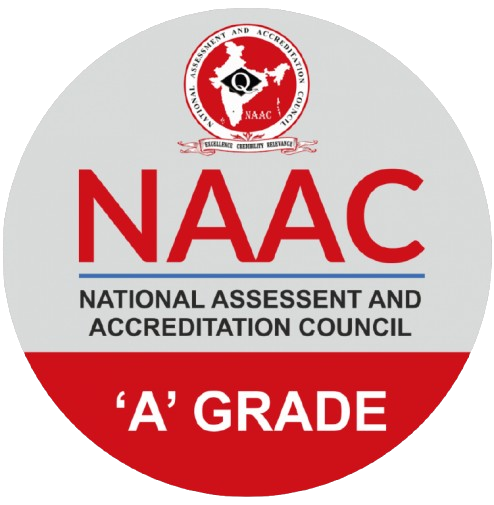PEOS, PSOS AND POS
Programme Educational Objectives (PEOs)
- Prepare graduates to become Computer Professionals with comprehensive knowledge and skills to produce software for emerging requirements.
- To provide training in recent technology to the students of Computer Application department as well as collaboration with our academic partners in the field of IT.
- Prepare graduates to become Consultant/Entrepreneurs in the IT and ITES industries with confidence in self‐employment.
Program Specific Outcomes (PSO)
MCA graduates will be able to:
-
PSO1: Solve real world computing system problems of various industries by understanding and applying the principles of mathematics, computing techniques and business concepts
-
PSO2: Design, test, develop and maintain desktop, web, mobile and cross platform software applications using modern tools and technologies
MCA Program Outcomes
- Computational Knowledge: Apply knowledge of computing fundamentals, computing specialisation, mathematics, and domain knowledge appropriate for the computing specialisation to the abstraction and conceptualisation of computing models from defined problems and requirements.
- Problem Analysis: Identify, formulate, research literature, and solve complex computing problems reaching substantiated conclusions using fundamental principles of mathematics, computing sciences, and relevant domain disciplines.
- Design/Development of Solutions: Design and evaluate solutions for complex computing problems, and design and evaluate systems, components, or processes that meet specified needs with appropriate consideration for public health and safety, cultural, societal, and environmental considerations.
- Conduct Investigations of Complex Computing Problems: Use research-based knowledge and research methods including design of experiments, analysis and interpretation of data, and synthesis of the information to provide valid conclusions.
- Modern Tool Usage: Create, select, adapt and apply appropriate techniques, resources, and modern computing tools to complex computing activities, with an understanding of the limitations.
- Professional Ethics: Understand and commit to professional ethics and cyber regulations, responsibilities, and norms of professional computing practice.
- Life-long Learning: Recognise the need, and have the ability, to engage in independent learning for continual development as a computing professional.
- Project management and finance: Demonstrate knowledge and understanding of the computing and management principles and apply these to one’s own work, as a member and leader in a team, to manage projects and in multidisciplinary environments.
- Communication Efficacy: Communicate effectively with the computing community, and with society at large, about complex computing activities by being able to comprehend and write effective reports, design documentation, make effective presentations, and give and understand clear instructions.
- Societal and Environmental Concern: Understand and assess societal, environmental, health, safety, legal, and cultural issues within local and global contexts, and the consequential responsibilities relevant to professional computing practice.
- Individual and Team Work: Function effectively as an individual and as a member or leader in diverse teams and in multidisciplinary environments.
- Innovation and Entrepreneurship: identify a timely opportunity and using innovation to pursue that opportunity to create value and wealth for the betterment of the individual and society at large
MCA Department
About
Department
Dept.
Vision and Mission
Hod
Profile
Faculty
PEOs, PSOs and
POs
Course
Outcomes
Syllabus
Lesson
Plans
Question
Bank
BOS Meetings
Mentor - Mentees
List
Infrastructure
MoU
Projects
Workshops
FDP
Guest
Lectures
MOOCs
Publications
Placements
Student
Activities
Alumni
Gallery
Department
Video


